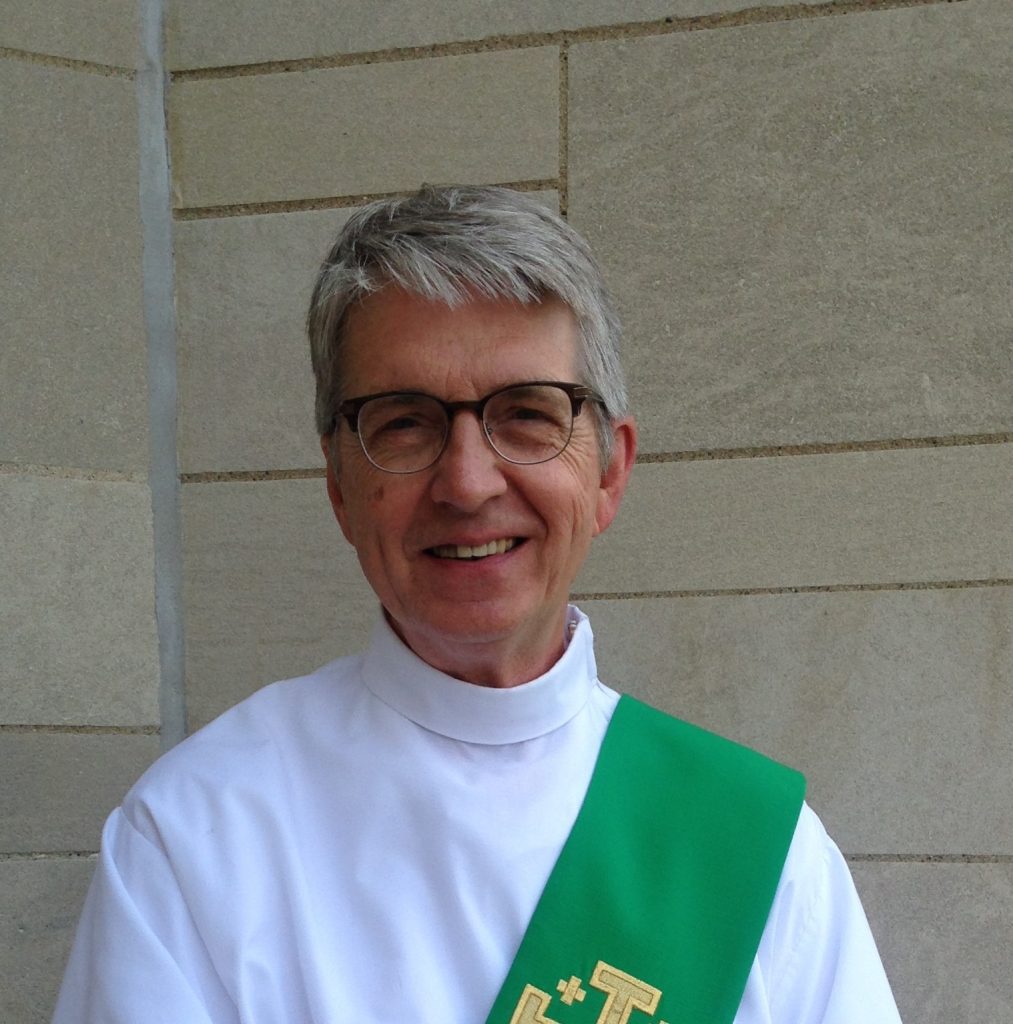 From the desk of Deacon Dave Etters…
From the desk of Deacon Dave Etters…
Recently, there was a meme circulating on social media – a desert scene where a man was looking up to a towering genie hovering above a lamp. “Ask of me three wishes and I will grant them,” promised the genie. “Make me rich!” the man replied. The genie says, “OK, Rich, what is your second wish?”
In our first reading today from 1st Kings, the Lord appears to Solomon in a dream and extends an extraordinary proposition, “Ask something of me and I will give it to you.” (I Kings 3:5) Think of that! It’s as if God hands Solomon a signed ‘blank check’ and tells him to fill in the amount and the allocation memo at the bottom of the check: “For ______________ ”. Solomon could have asked for most anything: long life, riches, victory over his enemies, or whatever. However, he unselfishly asks for “an understanding heart to judge [God’s] people and to distinguish between good and evil.” Where he could have requested most anything for himself, Solomon asks for the wisdom and discernment to serve God’s people.
Have you ever considered how you would respond if presented with that same proposition? Think of all the good, legitimate things that you could ask for (health, prosperity, employment, a losing season for Ohio State, etc.). Seriously though, take a few moments to actually list them. [Pause] OK, your list likely includes legitimate needs and perhaps even some wants. Also, your list probably includes the needs of others as well: homes for the homeless, priestly vocations, food for the hungry, peace in our cities or many other good and just things. Interestingly, the trajectory of this line of reasoning naturally culminates in the very heart of the Lord’s Prayer, “Thy Kingdom come, on earth as it is in heaven.” Even though we might not consciously ‘connect the dots’ of our needs and desires to the establishment of God’s reign in the earth, isn’t that in the end the one real answer to the human condition and our broken world? The Kingdom of God is what all would desire above everything else, if only it could be grasped by those who are blinded by unbelief, for ALL lesser goods are satisfied in this one radical, sweeping and profound reality.
Isaiah prophesied of the establishment of the Messianic Kingdom in glorious, metaphoric terms. The language speaks of a transcendent life, a miraculous reversal of the corruption of Original Sin:
“The cow and the bear shall feed; their young shall lie down together; and the lion shall eat straw like the ox. The sucking child shall play over the hole of the asp, and the weaned child shall put his hand on the adder’s den. They shall not hurt or destroy in all my holy mountain; for the earth shall be full of the knowledge of the LORD as the waters cover the sea.”
How fitting then is Matthew’s Gospel today, “…the kingdom of heaven is like a merchant searching for fine pearls. When he finds a pearl of great price, he goes and sells all that he has and buys it.” Who wouldn’t exchange the bauble of temporal earthly pursuits for solid gold? Here again the answer is, “All of us, only if we could grasp the Kingdom of God.”
Recently I have discovered a saint of the Eastern Rite, Mor Isaac of Nineveh. He is often referred to as Saint Isaac the Syrian (Mor is “saint” in Syriac). Saint Isaac said, “No one loves anything without multiplying his connections with it.” So, in order to “multiply our connections” with God we must cut our connections to those things that keep us from the love of God: obviously sin, but also certain ‘good’ things which are specific to each individual. For example, a priest “cuts his connection” to the good of marriage, which for another is part of God’s plan. In essence this is St Isaac’s concept of repentance: Cutting our connections to those things that keep us from fully loving God, and multiplying our connections to God himself, the source and fulfilment of all desire.
We, as the Church in the world, but not of the world, are called to proclaim the Kingdom of God. We do that in many ways with varied callings: the sacrament of marriage, Holy Orders, professions of teaching, medicine, law, and so on. Some are called to a cloistered monastic life, cutting most all connections in the world.
In his heavy Boston accent, seasoned with self-deprecating humor, the late Fr Matthew Kelty described the ongoing work and prayer of the Cistercian Trappist Monks of the Abbey of Our Lady of Gethsemani, near Louisville Kentucky.
Well, it’s bad enough that we make cheese and fruitcake for the Kingdom of God; we do worse than that…we sing. We sing for the Kingdom. Seven times a day, for ourselves and for the world…We’ve being doing it since we got here. They got here late in the afternoon of December 21st 1848….and it’s never stopped. Every day, seven times a day, day by day, week by week, year by year…..until the end. In a wild, sordid, noisy, violent world we sing. We sing ancient songs rich in history, graced by God for our healing, and for the healing of the world.
May we work and sing with our lives, “Thy kingdom come, thy will be done on earth as it is in heaven!”
Deacon Dave